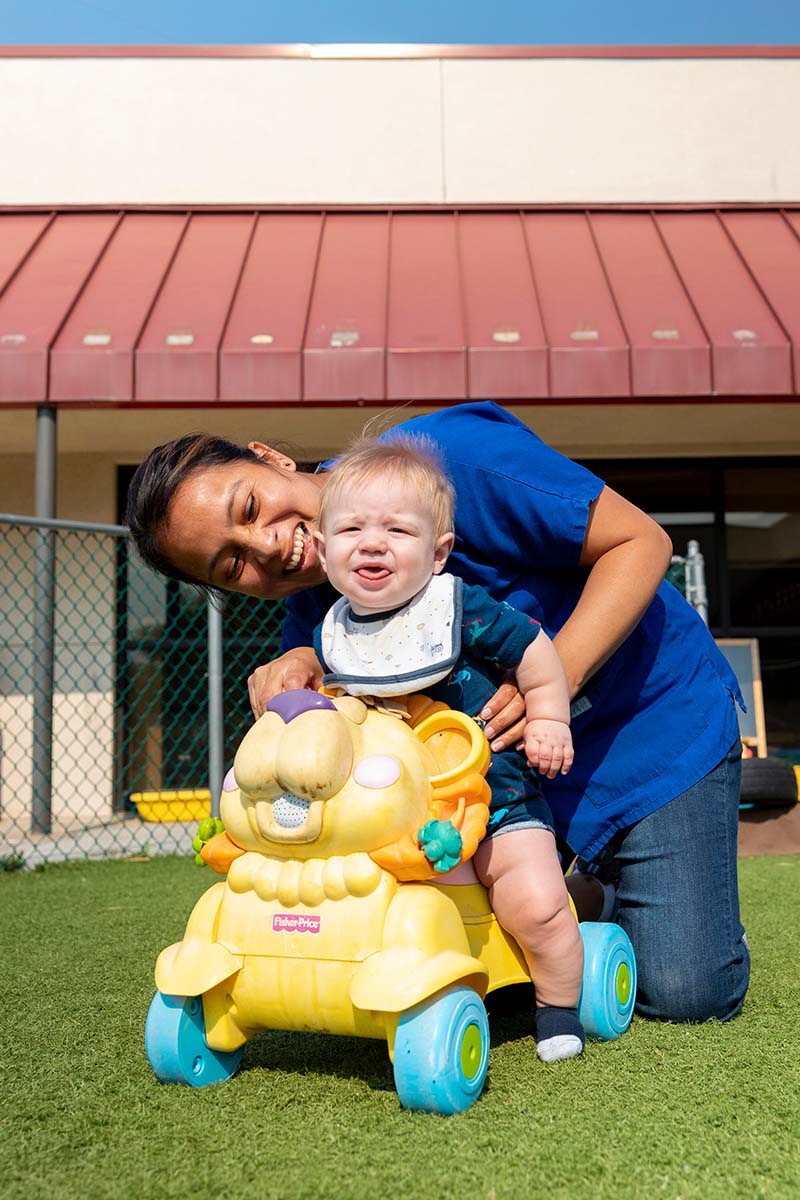
We will accomplish this by:
For the Early Childhood Education Department, PPSC stands for:
Professionals
Prepared
Critical decision-making
Child development knowledge
The dynamic nature of early childhood classrooms demands educators who exhibit professional attitudes and behaviors, fully aware of their influence on every child’s development through each decision they make. Intentional decision-making, grounded in sound child development knowledge and supported by reflective practice, is the hallmark of a Pikes Peak State College education. Our graduates are inspired to be lifelong learners, passionate about and committed to honoring and supporting the diverse children and families they serve. Our program is guided by three major pillars of early childhood education: foundational knowledge, professional disposition, and experiential practice.
Foundational Knowledge
Decisions involving young children are rooted in our understanding of child development
and learning. Research provides evidence of best practices that guide our actions.
Professional Disposition
A teacher's attributes influence every aspect of the classroom environment, setting
the tone for relationships and learning.
Experiential Practice
The connection between theory and practice is made through hands-on experiences in
a classroom, guided by a mentor teacher who supports reflective learning and thoughtful
self-examination.
Background Check Policy
All Early Childhood Education students at Pikes Peak State College are required to complete a national criminal background check through Castle Branch Background, as mandated by the Colorado Community College System (CCCS). Previous background checks for employment will not suffice.
How to Complete Your Background Check:
Important Details:
Practicum experiences, sometimes called lab or field placements, give you the chance to apply your new knowledge and gain valuable hands-on experience. During these placements, you’ll follow the NAEYC Code of Ethical Conduct and Core Values as you interact with mentor teachers, children, families, administrators, program owners, college faculty, and community stakeholders.
To help you transition smoothly into your practicum experiences, we've established the following guidelines and expectations:
1) All students in PPSC's Early Childhood Education Program must follow the policies and procedures outlined in the Early Childhood Student Handbook and College Catalog at all times and locations.
Review the PPSC Student Code of Conduct
|
ECE course and credits |
Lecture Hours |
Practicum Hours |
Age Group of Placement |
|
ECE 1045 1 cr lecture 2 cr practicum |
15 hours |
60 hours |
Preschool |
|
ECE 1125 1 cr lecture 2 cr practicum |
15 hours |
60 hours |
Infants |
|
ECE 2615 3 cr practicum |
No Lecture |
90 hours |
Special Needs |
|
ECE 2089 5 cr practicum |
Instruction Types
|
Type of Instruction |
% Transfer of Knowledge into Practice |
|
Theory only |
5% |
|
Theory & Demonstration |
10% |
|
Theory, Demonstration, & Practice |
20% |
|
Theory, Demonstration, Practice, & Feedback |
25% |
|
Theory, Demonstration, Practice, Feedback, and Coaching Support |
90% |
As an individual who works with young children, I commit myself to furthering the values of early childhood education as they are reflected in the ideals and principles of the NAEYC Code of Ethical Conduct. To the best of my ability I will:
A mentor teacher plays a crucial role in the success of practicum experiences in teacher preparation programs. Once you are placed in your practicum classroom, the classroom teacher becomes a mentor, guiding and supporting you as you apply your knowledge in real-world settings.
Responsibilities of a Mentor Teacher:
Mentor teachers are vital in shaping the next generation of educators, helping you bridge the gap between theory and practice.
PPSC ECE faculty are here to support your success as a student and ensure you are prepared for your future role as an early childhood educator. Faculty help facilitate your practicum by providing feedback on your performance and effectiveness.
Here’s what you can expect:
Addressing Challenges:
If any barriers arise during your practicum, such as difficulties with placement roles,
students or program directors should contact the ECE instructor to ensure course requirements
are met.
